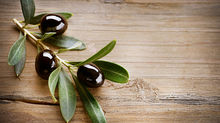Three things you want...and many you don't need to see in dog food
- Dr. Ena Valikov
- Oct 11, 2016
- 4 min read

Sweater weather and leaves changing colors remind me that Thanksgiving is around the corner and thoughts of delicious cooking come to mind.
We know that you will share your Thanksgiving meal with your pet and so we publish lists of do's and dont's.
Do's: share your lean skinless turkey, veggies,
potatoes, noodles, (without sauces, spices and butter), bread, cottage cheese.
Dont's:
* fat, greasy or spicy meat
*Onions and garlic
*Cooked bones
*Chocolate, particularly bittersweet, dark chocolate
*Desserts
*Grapes & raisins
*Xylitol, this sugar-less sweetener is incredibly toxic.
Consider downloading Om Nom? Can my dog eat it? OMG my dog ate it! app to help you calculate if your dog got into a dangerous amount of chocolate or other unhealthy stuff : http://omnomapp.com/chocolate-toxicity-calculator.

But what about the rest of the year?
If I had my druthers I prefer that dogs, just like people ate fresh whole food. I accept dry food as an item of convenience- while not confusing it with optimal nutrition that only fresh unprocessed whole food offers. Dry and canned dog foods are similar to frozen dinners for people, but because feeding a home made diet requires planning and proper balancing, processed pet foods are a fair compromise for busy people.
If you are interested in preparing pet food from human grade ingredients--a great idea-- please visit petdiets.com to get help from a boarded veterinary nutritionist. Most recipes floating around the internet are not complete or balanced.
Dogs can't live on meat alone, if for no other reason, than the fact that meat without bones in it is high in phosphorus and deficient in calcium, and so a boneless meat diet will lead to nutritional hyperparathyroidism and brittle fracture-prone bones.
But for now, lets learn how to pick out a better commercial diet out of thousands of choices.
Dogs are domesticated wolves- albeit shaped differently and selectively bred for different looks and temperaments over thousands of years. Nevertheless, dogs are much closer to carnivore (meat eaters) than herbivore (plant eater) like cattle or horses. So, I want to see meat listed as the first three ingredients.
Lets suppose you are looking at a bag of dog food made by Royal Mutt Company. I suggest you imagine in your mind's eye a brown bag with letters that say DOG FOOD, skip past all the claims and shiny pictures to avoid a myriad of marketing tricks.
Jump straight to the actual ingredient list.
The better dog foods will list meat like this:
1. de-boned beef
2. beef byproducts -I know, byproducts- eeeaaak, you say. I'll elaborate on that below
3. beef meal
These items could be beef, lamb, venison, chicken (most common), turkey, duck, fish. I use beef for illustrative purposes.
The species itself initially doesn't matter unless you are convinced your pet has an allergy to certain meats....and we do see that.
What matters is that meat is listed in the order I posted --as the first three ingredients.
Please avoid MEAT BYPRODUCTS, as well as ANIMAL fat, or MEAT meal- the species of animal must be listed! There's a reason the species of animal isn't listed, and it's very gross.

Beef byproducts- are visceral organs. Since most of us don't like eating livers, kidneys, spleens & other organ meat-they are considered byproducts. But they contain an awful lot of nutrients that your dog actually needs. Liver for example is packed with iron, B vitamins, protein and all the fat soluble vitamins your pooch needs- vitamins A, D, E, and K.
Beef meal is the carcass left over after meat and organs have been removed. Meals are a good source of minerals like calcium that your dog absolutely needs. But many dog foods use meat meal as the only source of animal protein, which is clearly an inferior source of nutrients.
The next set of ingredients you will see will be plant sources, primarily carbohydrates.
Carbohydrate is a fancy way of saying sugar...although it's present in long chains we call starches found in grains and vegetables.
Without grains or other forms of starchy vegetables it is impossible to bake a kibble. So you will see items like rice, potatoes, peas, corn, oatmeal, barley etc. Accept these as a necessary evil of baking kibbled pet food, as long as the list isn't a mile long. Avoid foods that list ten cereals instead of just one or two. The more cereals- the more filler and less expensive meat your dog really needs.
GMOs. As a local expert who has spent over five years researching genetically modified organisms present in many pet foods, I strongly advise against them. The scientific reasons are better explained in the GMO Science blog: http://beachvetlbc.blogspot.com/
Items to avoid : soy, corn, alfalfa, beet pulp- unless labeled organic.
Other items to avoid: stuff that cattle and horses eat: sorghum, alfalfa, cellulose. Yes, these fillers are often added to pet foods.
Look for a short list of ingredients. Often it's what's NOT in the pet food that makes the most difference.
If you prefer to cook for your pet, we will be happy to help you. But please do not randomly feed table foods on a regular basis. Without proper balancing you are liable to feed your dog an incomplete imbalanced diet that will risk rather than improve their health.
Here's to health!!!
Happy Thanks Giving!!!




























Comments